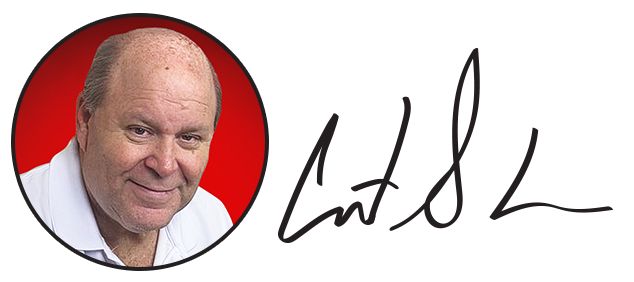
Interviews are critical junctures in the hiring process, especially for mid to senior-level roles. Candidates at this stage bring years of experience and expertise, but they can still stumble in interviews by either over- or under-emphasizing certain qualities, appearing unprepared, or misaligning with the role. Here are some of the most common mistakes mid to senior business professionals make during interviews—and how to avoid them.
1. Over-Emphasizing Experience Without Showing Adaptability
Mistake: Seasoned professionals sometimes lean too heavily on past experiences and can appear resistant to new ways of thinking. Focusing exclusively on "how it used to be done" can suggest a lack of openness to innovation. Solution: Balance your experience with examples of how you’ve adapted to changes in the past. Highlight instances where you embraced new technologies, adapted to industry shifts, or learned from newer team members. Show that your experience is a foundation, not a limitation.
2. Failing to Research the Company Thoroughly
Mistake: Often, mid to senior professionals assume their general industry knowledge will suffice, leading to surface-level responses about the company. Hiring managers want to see commitment, especially for high-stakes roles. Solution: Go beyond the company's website. Research recent news, product launches, and industry trends that affect the company. This deeper knowledge demonstrates genuine interest and lets you tailor responses to align with the company’s current challenges and future goals.
3. Assuming Leadership Is Solely About Authority
Mistake: Some professionals focus on authority-driven leadership styles rather than collaborative or supportive approaches, which can appear outdated, particularly if the company emphasizes a more modern, inclusive leadership style. Solution: Illustrate your understanding of leadership as a balance of guidance and empowerment. Share examples of times you mentored team members, encouraged innovation, or championed team autonomy. Highlight your adaptability to different team dynamics and company cultures.
4. Providing Lengthy Responses
Mistake: With years of experience comes a wealth of stories, and it’s tempting to dive into lengthy answers. However, interviewers can lose interest if you don’t keep your responses focused and concise. Solution: Structure your answers with clarity. Use frameworks like STAR (Situation, Task, Action, Result) to convey key points quickly. If more details are required, the interviewer will ask. Aim to communicate insights, not just information, and make sure each example you share has a clear, relevant point.
5. Underestimating the Importance of Cultural Fit
Mistake: Senior professionals sometimes assume that skills and experience are the main hiring factors, overlooking cultural fit. Companies today place a high premium on candidates aligning with their values, communication styles, and team dynamics. Solution: Reflect on what type of environment you thrive in and ask insightful questions about the company culture. Express genuine interest in their values and vision. Make it clear that you’re not only capable of doing the job but also enthusiastic about contributing to the company’s culture.
6. Avoiding or Minimizing Discussion of Skill Gaps
Mistake: Feeling pressured to appear perfect, some professionals dodge discussions around skill gaps. However, avoiding these questions or giving vague answers can come across as evasive. Solution: Embrace any areas for improvement as opportunities for growth. Be transparent about what you’re currently working on, and, importantly, mention any recent learning efforts or training. Showing that you’re proactive in addressing skill gaps demonstrates a growth mindset, which is highly valued.
7. Being Overly Focused on Titles or Perks
Mistake: Mid to senior professionals may focus heavily on title changes, perks, or benefits during interviews, which can imply that these elements are more important than the role itself. Solution: Keep your focus on the role, its responsibilities, and how you can impact the organization. It’s fine to discuss titles and perks, but first emphasize your genuine interest in the role and the contributions you’re eager to make.
8. Talking About Prior Employers Negatively
Mistake: Mid to senior candidates sometimes discuss frustrations with previous roles, especially if they were let go or downsized. However, negative talk can come across as unprofessional or indicate bitterness. Solution: If asked about prior employers or reasons for leaving, stay neutral or positive. Focus on what you learned, how you grew, or why you’re excited to bring your skills to a new environment. A positive outlook speaks volumes about your character and resilience.
9. Overlooking Behavioral Questions
Mistake: Behavioral questions (e.g., "Tell me about a time when…") are crucial in interviews today, yet experienced professionals sometimes overlook or dismiss them as trivial. Solution: Take these questions seriously. Prepare examples that showcase your problem-solving skills, emotional intelligence, and resilience. Good behavioral responses offer tangible insights into how you approach real-world challenges and work with others.
10. Not Conveying Enthusiasm
Mistake: Senior professionals sometimes assume that their experience speaks for itself, leading them to appear disinterested or reserved. However, hiring managers value candidates who are genuinely excited about the role. Solution: Show enthusiasm for the role and the company’s mission. Share why this opportunity excites you and how you envision contributing to the team’s success. A positive attitude can be the deciding factor between two otherwise equally qualified candidates.
Final Thoughts
The key to avoiding these common mistakes is a balanced approach: blend the insights from your experience with openness to new ideas and genuine interest in the role at hand. By keeping these tips in mind, you can present yourself as a well-rounded, adaptable candidate who is not only qualified but also excited to grow with the company. Remember, interviews are a two-way street—it's about finding the right fit for both you and the organization.

Curt Skene
FOUNDER
The Career Network Club